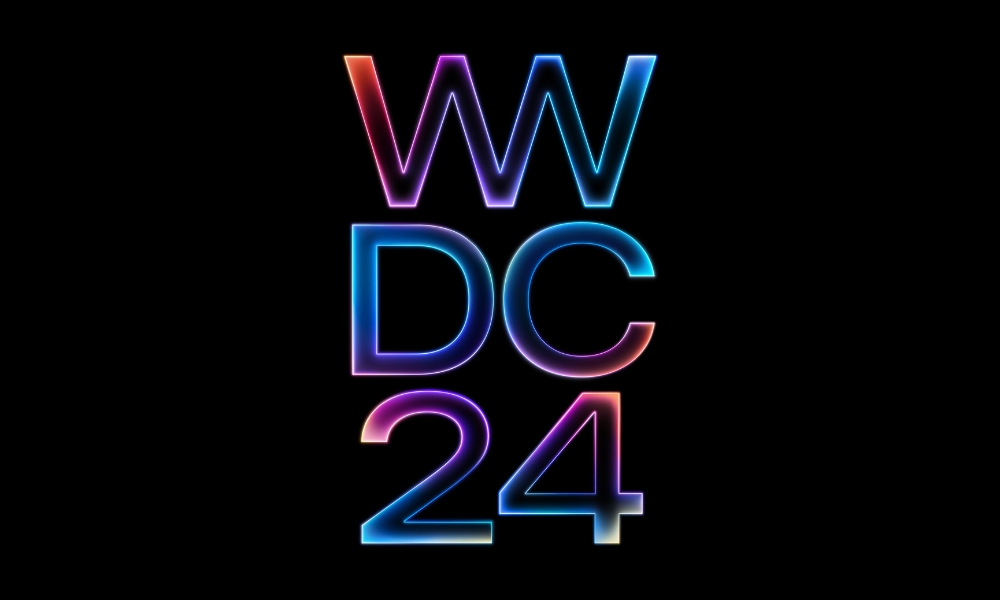Apple Officially Announces WWDC 2024

Toggle Dark Mode
It’s official: Apple’s 2024 Worldwide Developers Conference (WWDC24) will kick off on June 10, 2024, with the usual slate of major software release announcements for the iPhone, iPad, Mac, and more.
Apple announced the details today, but there aren’t too many surprises this time around. The conference will be held in the same online format that’s been the norm since the global health pandemic forced Apple to move away from in-person events. The list of software releases — iOS 18, iPadOS 18, macOS 15, watchOS 11, and tvOS 18 will likely be joined by visionOS 2.0 this year, but it will otherwise likely be the same dog-and-pony show as usual.
While WWDC was once a solely in-person affair — and a pricey one, at that — one of the good things to come out of the COVID-19 pandemic was Apple’s realization that an online event was a much better way to open it up to many more developers, both by eliminating the constraints of packing everyone into one place, and the cost of charging a registration fee and running a “lottery” for tickets.
After social distancing and lockdown restrictions were relaxed, Apple began offering an in-person component to the WWDC keynote, but this was mostly just an opportunity to gather together in the Apple Park Visitor Center and watch the same pre-recorded presentation on a big screen, followed by a tour of the campus and a few other “special activities.”
While WWDC is a weeklong event for developers of all stripes — it actually runs from June 10–14 — what most of us will be tuning in for is the keynote that kicks off the week with Apple’s big software announcements.
The buzz this year is that all those updates will be strongly focused on new generative AI features since that’s all the rage these days. In fact, the news has been so centered on AI that we haven’t heard too much else about what to expect from iOS 18 et al.
Beyond the software, Apple often adds some hardware to the mix, although not always. The Vision Pro stole the show at last year’s WWDC23, but we also saw Apple’s M2 Ultra chip introduced in a new Mac Studio and the first Apple silicon-powered Mac Pro, along with the 15-inch M2 MacBook Air. WWDC22 similarly gave us the first M2 Macs — a redesigned 13-inch MacBook Air and what would turn out to be the last of 13-inch MacBook Pro models.
On the other hand, WWDC21 had no hardware announcements at all, and WWDC20 was used only to announce Apple silicon, without any specific news on the Macs that it would eventually power. Those didn’t arrive until later that year.
This year, we’re not expecting anything significant in hardware. Apple has some new iPads on deck, but they’re expected to arrive sometime in April, and we’re still a long way away from an M4 chip. At most, we might see the M3 Ultra show up for Apple’s highest-end Macs, but the news on that is so quiet that it likely won’t be more than a minor refresh — if it happens at all.
However, in case there was any doubt that AI will be taking center stage this year, Apple senior vice president Greg “Joz” Joswiak offered a not-so-subtle hint on Twitter/X that this year’s event would be “Absolutely Incredible”—caps and all.
Of course, Apple is no stranger to AI and machine-learning features in iOS. Last year’s Live Voicemail Transcription in iOS 17 is simply the most recent example of a set of behind-the-scenes tools that go back to at least iOS 10’s on-device photo recognition capabilities.
However, these AI tools have never been as prominent as competing initiatives like Google’s Magic Editor, so Apple clearly realizes it needs to capture some more mindshare, if nothing else.
What we’ll see from Apple in the AI space is anyone’s guess at this point. The rumor mill is alive with all sorts of ideas and speculation, some of which may have come from sources within Apple. The company is reportedly in talks with Google to incorporate Gemini into the system somehow, and there’s good reason to believe that we’ll see some Siri get smarter and other quality-of-life improvements like automatically generated Apple Music playlists and the ability to summarize notes and help write replies in messages. However, some analysts suggest Apple is likely to take baby steps in some of these areas to ensure it doesn’t compromise user privacy and security.
One of the most dubious claims to surface recently is that Apple will unveil a new AI App Store at WWDC. This idea appears to be based more on speculation by industry analysts than on any solid evidence from Cupertino. It seems a bit odd that Apple would open a distinct App Store solely to host AI apps, any more than it would create a dedicated “Game Store,” so we wouldn’t put too much stake in this one.
It’s certainly plausible that Apple is encouraging developers to create new generative AI experiences and likely find a way to highlight those on the existing App Store, but a dedicated store exclusively for AI apps doesn’t feel like something Apple would do. After all, there are already key AI apps on the App Store today — ChatGPT, Google’s Gemini, and Microsoft Copilot, among them — along with many “normal” apps that incorporate AI features. Promoting AI apps makes a lot of sense; creating an artificial division by putting them in a different store doesn’t.







